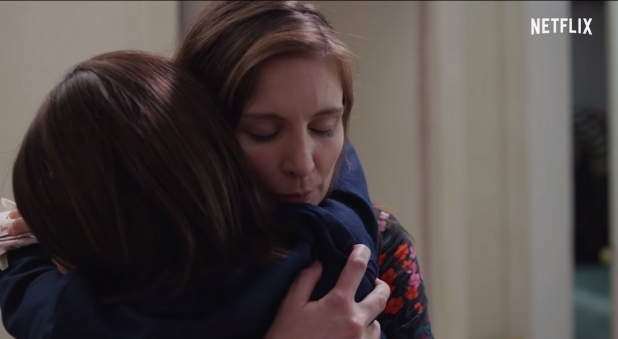At first, Unorthodox (Netflix) made me uncomfortable. People losing their faith and leaving behind their beliefs is a familiar story and usually an unhappy one. Until you realise that what the main character, Esty, is leaving behind is a belief system based on compulsion, rules and regulation and, at points, trickery. This is the Satmar Hasidic Jewish community in New York. Or so we are told.
Flight to freedom
The series opens with Esty Shapiro (played by the diminutive Israeli actress
Shira Haas) breaking through the eruv, or border, which surrounds her ultra-Orthodox Jewish community in Brooklyn. She is escaping to Germany, of all places, where many of her ancestors were killed in the Holocaust.
In flashback, we see that she was left behind when her mother fled the community 15 years earlier. Raised by her grandmother, the 19-year-old entered into an unhappy arranged marriage. She flees to her mother in Berlin, pursued by her husband Yanky and his cousin, a Satmar “fixer” called Moishe who is determined to bring her back.
Along the way, the series explores the ultra-Orthodox Jewish traditions Esty has been trying to escape, and the hypocrisy of the supposedly pious Moishe who is a compulsive gambler. Contrast all she left behind with free-thinking young music students she meets on her first day in Berlin. They are everything her Jewish community is not and open her eyes to music and the freedom of the secular world.
“You escaped, didn’t you,” Yael, an Israeli violinist, says to Esty.
“You make it sound like I was in prison,” Esty replies.
“Weren’t you?” Yael says.
“No!” says Esty. “But I left without telling anyone...”
It’s a short series, well acted by Haas and expertly crafted by the creatives behind the breakthrough German drama Deutschland 83. It is based on the autobiography of American-German writer Deborah Feldman, titled Unorthodox: The Scandalous Rejection of My Hasidic Roots.
It is loosely based and therein lies the problem. The storyline doesn’t quite ring true and neither do many of the characters. One dimensional is the best way of describing it.
One writer who, like Feldman, left the Satmar Jews behind, put it this way: “It’s okay to show the dark side of Hasidism, but the portrayal still needs to be human. The characters in Unorthodox are cartoonishly evil. Their kind moments seem out of character and are unconvincing. They are not like any humans I have met ever, Hasidic or otherwise.”
A different kind of prodigal
I found myself identifying in some ways with this story – the issues of the secularist worldview being pitted against faith confront all “religious” people.
Like Hasidic Jews, my faith comes from a belief in the God of the Bible and a love of the history of the people of Israel. But like many who abandon the faith of their childhood, Esty believes it will lead to freedom. It doesn’t. She simply swaps Jewish Orthodoxy and its rules for the secular orthodoxy of self-expression.
As I watched, I longed to see her explore forgiveness, grace and a personal relationship with Jesus the Messiah, in whom there are no borders to escape; instead there are loving arms to welcome.





























